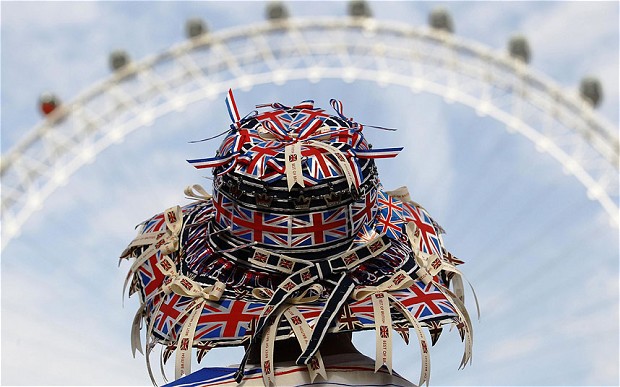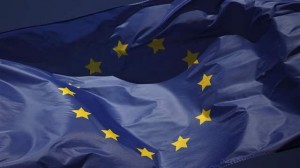
UK confirmed as fastest growing economy in Western Europe
February 3, 2014Can Europe protect the Euromaidan?
February 3, 2014Foreign policy is back on Europe’s agenda. Two high-profile foreign policy successes – on Kosovo and Iran – are a powerful illustration of how Europe can achieve remarkable results when member states and EU institutions work hand in hand. Both of those achievements are the result of a long process that began years ago. The 2014 edition of ECFR’s Scorecard also shows – apart from those successes – that Europe struggled to stabilise its own neighbourhood: The crisis in Syria worsened, the EU’s neighbourhood policy remained ineffective in countries such as Egypt, and Europe found itself increasingly at odds with Russia.
The fourth annual edition of ECFR’s groundbreaking ‘European Foreign Policy Scorecard’ examines 66 individual aspects of European foreign policy in six key areas: relations with the US, China, Russia, Wider Europe, Middle East/North Africa and Europe’s performance in multilateral institutions and in crisis management. The authors also award grades for overall performance and label individual countries “Leaders” or “Slackers” depending on whether they lead or hinder Europe’s ability to achieve its interests on particular goals.
- European foreign policy in 2013: 2013 was a good year compared to the previous three. There was improvement in performance on relations with China (from C+ to B-), Wider Europe (from C+ to B-) and the Middle East and North Africa (from C+ to B-). On the other hand, Europe performed worse on relations with Russia, and on multilateral issues and crisis management.
- Activism instead of leadership? The role of EU member states: France was the most activist EU member state but often failed to gain support from other member states. The UK focused on trade and bilateral relationships, a more ambitious policy agenda could not be detected. Germany pursued a more interest driven foreign policy. Italy made a remarkable comeback in 2013 by re-engaging with foreign policy issues ranging from the neighbourhood to development cooperation. Sweden and Poland cemented their role as leaders of European foreign policy.
- TTIP: Europe’s next big foreign policy story? A transatlantic free trade area could have important strategic and economic benefits for the EU. TTIP could allow Europeans to set new standards in global trade. However, TTIP is a long term project and much like Iran and Kosovo could take a decade to yield results. At the same time the NSA revelations could prove more damaging to the transatlantic relationship than the Iraq war was a decade ago.
“A pioneering experiment in foreign policy analysis” Foreign Affairs
“An invaluable tool that expands our knowledge of EU foreign policy” Javier Solana
Summary of the main grades
China (B-): European performance in relations with China improved after a successful EU-China summit and promising co-operation on Syria, Mali and the Iranian nuclear problem. But the solar panel case showed member states were willing to undermine the European Commission on economic issues.
Russia (C+): Performance in relations with Russia worsened as Europeans struggled to respond to increasing pressure on Eastern Neighbourhood states. European resolve on energy issues did not lead to successful diversification of energy.
United States (B-): 2013 was a year of breakthroughs in the transatlantic relationship, with the launch of TTIP negotiations and co-operation on an Iran nuclear deal. But a failure to work together on the Syria crisis and the fallout of the Snowden revelations cancelled out the positive developments in overall performance.
Wider Europe (B-): European performance on Wider Europe improved this year as Croatia joined the EU and High Representative Catherine Ashton facilitated a historic agreement between Kosovo and Serbia. Relations with Turkey were also mildly encouraging, but setbacks in negotiations with Ukraine and Armenia showed that Europe needs to find a way to respond to Russian pressure.
Middle East and North Africa (B-): Except for involvement of the E3+3 in successful nuclear negotiations with Iran, European performance in the southern Mediterranean was disappointing again. The irrelevance of the ENP to major developments in the region became clear, especially in Syria and Egypt.
Multilateral issues and crisis management (B-): Fast-moving crises and complex multilateral negotiations tested Europeans in 2013. France intervened in Mali and CAR but only got limited support from other member states. Diplomatic efforts on Syria and climate issues were disappointing and there were new challenges in crisis management.
“Leaders” and “Slackers” in European Foreign Policy
Top Leaders: France (12), UK (11), Germany (10), Sweden (10), Italy (9)
Top Slackers: Germany (4), Greece (4)
ECFR’s European Foreign Policy Scorecard is an innovative research project that provides a systematic annual assessment of Europe’s performance in dealing with the rest of the world. The Scorecard project was funded by Compagnia di San Paolo. Click here for an explanation of the methodology.


